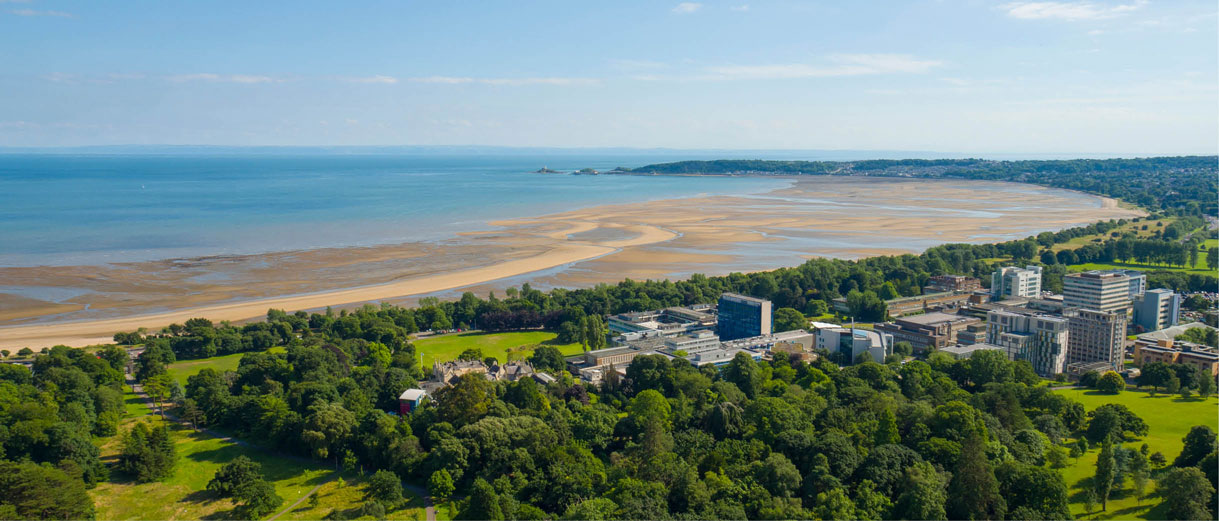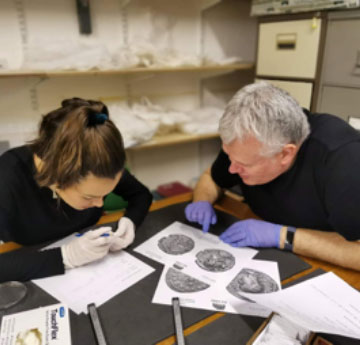-
CL-M09
Dissertation in Ancient History and or Classical Literature
Students produce a dissertation of up to 20,000 words on Classics and Ancient History or approved Classical Subject topic, chosen in conjunction with their supervisor. This represents the culmination of the MA Classics and Ancient History and constitutes Part Two of the programme.
-
CL-M103
Heritage in Conflict
This module will engage students in critical analysis and discussion of the protection, destruction, damage and looting of cultural heritage in conflict from the First World War to the present day conflicts in Ukraine and Gaza. The main focus will be on tangible cultural heritage - historic and religious buildings, archaeological sites and monuments, works of art and cultural institutions such as museums and archives. However, some attention will be paid to intangible and natural cultural heritage, and the specific challenges of protecting it.
The materials studied will prompt students to consider questions such as how cultural heritage is defined and by whom; why and how cultural heritage is damaged and destroyed in conflict; the humanitarian and practical rationales for protecting it; and the military, institutional and legal protections available and their limitations. Particular issues to be examined include the development and organisation of specialist military cultural protection units like the Allied MFAA 'Monuments Men' of the Second World War and their modern counterparts; the roles played by international organisations such as UNESCO and Blue Shield; and the changing protection accorded to cultural property accorded by the law of armed conflict and international humanitarian law from the 1907 Hague Convention to the 1977 Protocol I to the Geneva Conventions, by way of the 1954 Hague Convention for the Protection of Cultural Property in the Event of Armed Conflict.
Case studies examined may include the First World War damage to Reims Cathedral, the 1943-44 bombings of Pompeii and of Montecassino Abbey, the 1993 destruction of the bridge at Mostar and the destruction of Yazidi cultural heritage and ancient and religious sites in Syria and Iraq by Da'esh/ISIL in 2014-15.
-
CL-M112
Creations of Egypt in the Greco-Roman World
People of the ancient Mediterranean world had a lasting fascination for Egypt. Here was a culture reaching past into times immemorial, at least compared with Greek and Roman traditions about the past. It was a land of big monuments, exotic customs and unfamiliar gods. In this module we consider how Greeks and Romans thought about Egypt and how they adapted some aspects of Egyptian civilisation and made them part of their own cultures. This relationship involved travellers, settlers, conquerors and pilgrims, and we can encounter it in literature, art, architecture and religion. We will discuss the context of these cultural exchanges in different period, from the eighth century BCE to late antiquity. There is a chance to discover epic stories, ethnography, historical accounts, fictional narratives and stories about saints in the desert. We might look at Egyptian features which were adopted in Greek and Roman art, and consider how cults of Egyptian gods, most notably Isis, became embedded in many places around the Mediterranean. You¿ll have a chance to consider modern theoretical approaches to cultural exchange and stereotyping, most notably Orientalism, which we¿ll use to subject Greek and Roman representations of Egypt to critical analysis. For the assessments, you will be able to choose your own case study: for example, you could consider representations of Egypt from archaic Greek epics to archaeological finds in Roman Britain, from Greek vases to ideas in early Christian texts, tailoring work for this module to your own interests.
-
CL-M113
Advanced Research Project Preparation
This module will develop the generic research skills acquired in CL-M08 (Research Methodologies in Classics and Ancient History) and focus them specifically towards preparation of a research proposal for the independent research project (CL-M09 Dissertation in Ancient History and/or Classical Literature). To this end students will be required to reflect critically on the feedback they have received for work in TB1; they will also be challenged to investigate diverse methodological approaches to their proposed area of research, for example by examining how understanding aspects of material culture enhances research approaches to literary texts (and vice versa). By the end of the module, students will have prepared a detailed research proposal for their dissertation.
-
CLD300
Classics, Ancient History, Egyptology Dissertation
Dissertation module for students doing single honours or joint honours degrees in Classics, Classical Civilisation, Ancient History or Egyptology. The aim is for students to do detailed research, to work on a project for several months and to produce a scholarly study of c. 8000-10000 words.
The dissertation topic can be chosen freely, in consultation with a member of academic staff and subject to compatibility with a student's degree scheme and availability of supervisors and library material. This is a chance for students to pursue an area in which they are especially interested, and to deal with it in depth. Students may choose to do museum-based research.
There are two preparatory pieces of assessment: an abstract, outline and bibliography, and an analysis of crucial source material and/or secondary literature. Work on the dissertation itself takes up most of the two semesters. Students are expected to do research independently, but there is a series of lectures in the first semester to provide advice on research and scholarly writing, Every student will be assigned a supervisor who will be organising group sessions with his/her supervisees and who will also be available for one-to-one supervision sessions.
-
CLH150
Rome from Village to Empire: An Introduction to Roman History
This module introduces key places, peoples, and institutions that underpin the study of Roman culture and society. It is intended to provide a framework that will form the basis for more specialised study of Roman history at Levels 5 and 6. In addition to introducing key themes about the Roman world, such as imperialism, responses to Roman rule, social and political structures, `othering¿, gender, and religion, it will encourage students¿ critical engagement with a range of primary sources and help to develop their academic writing skills.
-
CLH2006
The Imperial Image: Roman Emperors and Imperial Women in History, Literature and Art.
Roman emperors and their male and female kin are among the most intensively documented individuals of the ancient Mediterranean world. We know about them from a variety of different source materials including literature (biography, narrative history and rhetoric), inscriptions and visual media (portrait and relief sculpture, coins). However, none of these media are unproblematic. As the Roman historian Tacitus (hardly a dispassionate witness himself) points out, ancient writers' accounts swung from sycophancy to hostility as individual emperors came to the throne and then passed on. Official art, on the other hand, presented the imperial family as the emperor wished it to be portrayed. Much of our evidence depicts emperors and their kin as polarised packages of conventional rhetorical vices and virtues, with (for example) the implausibly virtuous Marcus Aurelius at one extreme, and the equally implausibly vicious Gaius Caligula (or Domitian, or Commodus) at the other.
This module will develop students' ability to engage in critical study of imperial power and personalities in the Roman world, through a nuanced study of the available evidence. Within the wider framework of lecture-based classes addressing the general issues raised by the study of Roman emperors and empresses, CLH2006 students will examine the vices and virtues of selected emperors and imperial women in weekly workshops.
-
CLH381
Culture and Control in Roman Britain
Drawing on a range of evidence (archaeology, ancient literature, art and inscriptions) and critical readings of modern scholarship, this module investigates a range of topics relating to cultural change and cultural interaction in Roman Britain, and how they reflect the nature of Roman power there.
-
HHC200
The Past in the Present: Exploring Heritage Practice and Debates
This module will give students an introduction to the heritage industry. It¿s suited both to those considering a career in this sector and to students who¿d like to think in more general terms about the way our society consumes the past. The module will combine critical analysis of a range of heritage sites with lectures and seminar discussion of the lively debates around the role of history and heritage in society. We¿ll explore the challenges of difficult histories ¿ such as the legacies of slavery and colonialism. We¿ll consider both tangible heritage, like physical buildings and landscapes, and intangible heritage, like language and culture. The module will be assessed by a coursework portfolio of site reviews and an extended essay.
-
HIHM01
Approaches and Debates in Heritage and Public History
This module offers an introduction to current debates in heritage and public history and a chance to develop practical skills in the communication of history to broad audiences. It will provide an opportunity to reflect on the relationship between academic study and the past as portrayed by, with and for the public (or publics). You will explore case-studies in heritage from around the world. Why have museum presentations of history proved so controversial? What is the role of heritage in national and community-building? There will be opportunities to try out a variety of practical techniques in historical communication, and to reflect on their strengths and weaknesses. You will familiarise themselves with current policy contexts for heritage and public history, and will acquire valuable skills for careers in the heritage sector and beyond.


